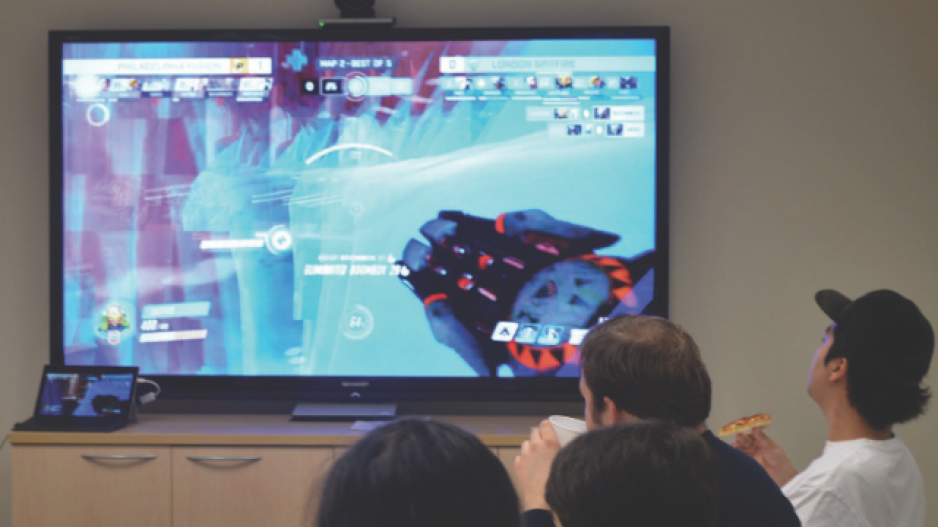The Â鶹´«Ă˝Ół»Canucks franchise probably shouldn’t expect to draw roaring throngs of fans to Rogers Arena based on last season’s performance.
Instead, it’s eSports fans, many of whom flocked to the venue last month when the city played host to The International Dota 2 championships, who are showing a fervour once reserved for playoff-calibre big-league sports teams.
At that global video game competition, thousands of spectators watched the world’s best players sweat and strategize for six straight days in pursuit of $25 million in prizes.
The Aquilini Investment Group, owner of the Â鶹´«Ă˝Ół»Canucks, is now counting on that same passion to carry over into its latest investment: a new franchise in the Overwatch League.
The Â鶹´«Ă˝Ół»franchise enters the league for the 2019 season with five other new teams from Toronto, Paris, the U.S. and China.
“So far the fans are pretty excited for this team to be coming to Vancouver,” said Nessa Harrison, director and team manager of the University of British Columbia’s eSports Association’s Overwatch department.
The game plays like a first-person shooter, but it trades in the typical blood and guts for bright colours and stylized animated heroes.
The Â鶹´«Ă˝Ół»franchise, which doesn’t yet have a name, is expected to be based in California for the 2019 season.
Harrison plans to host viewing parties throughout the year before players move to the city.
A viewing party for the league’s grand championships in July drew 50 people to two boardrooms at Telus Garden before a local franchise had been announced.
“That just made me realize it didn’t matter where you’re watching just as long as you’re with other fans,” Harrison said.
“They’re just so engaged in the gameplay that they’ll just talk and get excited and cheer on their teams.”
Rogers Arena seems like an obvious location for a burgeoning eSports franchise following The International.
Myesports Ventures Ltd. announced in August it would build Canada’s first dedicated eSports arena in Richmond, with an expected completion date in 2019.
However, seating at the Gaming Stadium will be capped at 250 spectators.
It’s a far cry from the thousands who attended The International at Rogers in August or the League of Legends spring championship at Pacific Coliseum in 2017.
And it’s not an industry slow to gain traction.
ESports revenue is expected to grow to US$905.6 million by year’s end, according to marketing research firm Newzoo.
That’s up 38 per cent from last year, and the report estimated the industry could generate US$1.4 billion by 2020 at its current trajectory.
Most of that revenue growth (77 per cent) will come from sponsorship, advertising, media rights and content licences.
Meanwhile, Harrison expects fans of Vancouver’s Overwatch League team to buy merchandise such as jerseys and shirts with as much gusto as traditional sports fans.
But James Brander, a professor at the University of British Columbia’s Sauder School of Business, said he doesn’t imagine the growing industry will siphon off fans of traditional sporting events.
“If anything, I think the effect would be complementary. ESports are more in competition with other forms of online gaming such as online poker, online role-playing games and fantasy sports.”
@reporton



